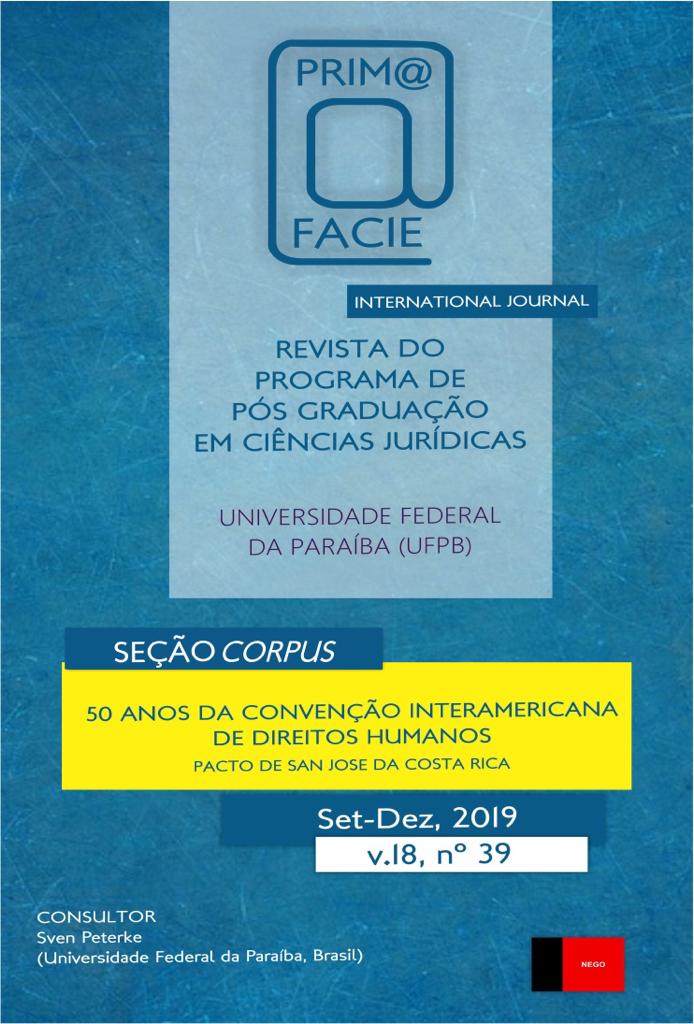A Constitucionalidade Da Lei Da Anistia E As Implicações Do Julgamento Do Caso Gomes Lund
DOI:
https://doi.org/10.22478/ufpb.1678-2593.2019v18n39.48714Keywords:
Anistia, Constitucionalidade, Convencionalidade, Ditadura, Direitos humanos, Justiça de transição, Jurisdição internacionalAbstract
The present essay aims to verify the constitutionality of the Brazilian Act of Amnesty (Act 6.683 of 1979) and the potential consequences of the Gomes Lund et al vs. Brazil ruling by the Interamerican Court of Human Rights. Issued during the transition between the Brazilian Military Regime and the present-day New Republic, the mentioned act granted amnesty to serious human rights violations committed against military and civilians over that dictatorial period. In 2010 the Brazilian Supreme Court (Supremo Tribunal Federal – STF) ruled that the act was constitutional, but in that same year the Interamerican Court of Human Rights (ICHR) held that it was incompatible with the Pact of San José. Through the deductive hypothetical method, the study of this topic intends to analyse the arguments presented by the Brazilian Bar Association (Ordem dos Advogados do Brasil – OAB) against the Act of Amnesty to verify its validity and then reflect on the possible consequences of the ICHR ruling, specifically in relation to internal Brazilian law. We conclude that the Act of Amnesty is constitutional and that invalidating it because of the late ICHR verdict would violate the principle of legal certainty. Therefore, the ICHR ruling may not have internal legal consequences in Brazil.


